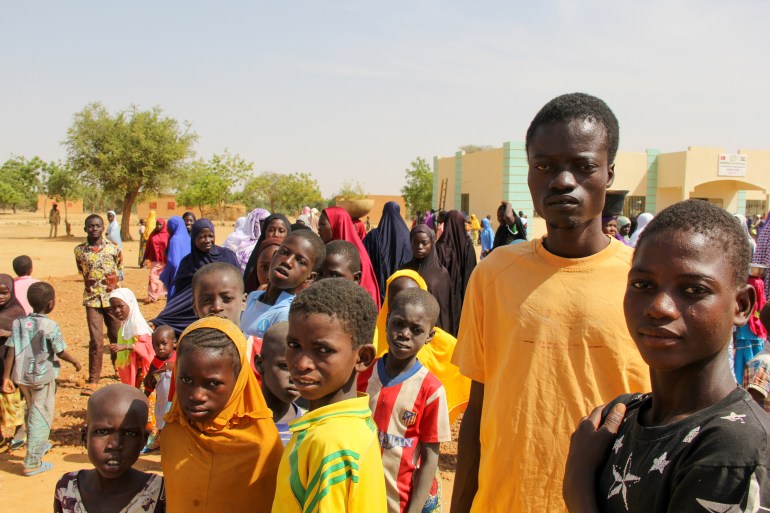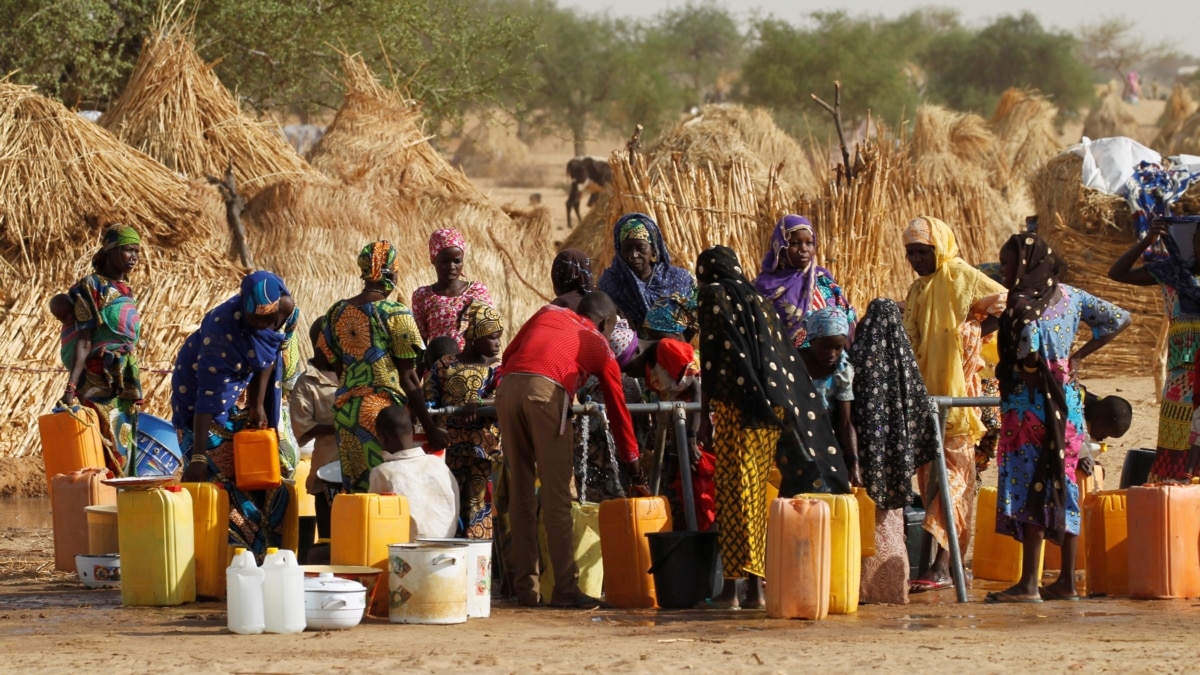This article provides an overview of the lifestyle in Niger, highlighting the challenges, history, natural environment, tribal and urban life. It also reviews the most important challenges currently facing the country and provides some recommendations and travel tips.
About the lifestyle in Niger
Niger is a country located in West Africa, characterized by a unique natural diversity that includes the desert and the river. The way of life in Niger is characterized by the presence of constant challenges and struggles, a rich history of cultural transformations and influences. It is also distinguished by the diversity of the natural environment, tribal and urban life, as well as rich culture and active trade.
Challenges and struggles
Niger faces numerous lifestyle challenges, including poverty, water shortages, and food security. However, Niger is working hard to combat these challenges by implementing sustainable development programs, promoting agriculture and improving water resources management.

Lifestyle in Niger
History of Niger
The history of Niger dates back thousands of years, as the region was inhabited by Indigenous people before the arrival of Arabs and Berber traders. Niger was influenced by ancient trans-Saharan trade and multiple kingdoms were established in the Middle Ages. Niger was subjected to colonial influences by the French in the XIX century and became part of the French colonization. In 1960, Niger regained its independence and became an independent state.
Historical and cultural transformations
Regarding the historical and cultural transformations in Niger, the country has experienced both external and internal influences over the ages. Nigerian culture has been influenced by trans-Saharan trade and Arab and Islamic influences. Niger is also characterized by a plurality of tribes, languages and a diverse cultural heritage.
External and internal influences
Niger has been affected by many external and internal influences throughout the ages. It has also been influenced by trans-Saharan trade, European colonialism and internal political shifts. These influences have shaped the lifestyle and culture of Niger and shaped its diverse and rich society with multiple traditions and Customs.
The natural environment of Niger
Niger is characterized by its diverse and rich natural environment, featuring a diverse terrain from the vast desert to beautiful rivers and lakes. The local flora and fauna are one of the most important components of this environment, which makes it an ideal destination for nature lovers and travelers.
Terrain, climate and vegetation
Niger is characterized by its diverse terrain and harsh climate. The northern part of the country consists of the Sahel-Sahara desert, while the central part consists of uneven plains and plains. The southern regions are characterized by an abundance of trees, natural vegetation and green meadows.
Local animals and birds
In Niger, a variety of local animals and birds live. These animals include elephants, lions, giraffes, tigers. In addition, Niger is home to many amazing birds such as Eagles, ostriches and Swans. Visitors can enjoy watching them in nature reserves and national parks.

Lifestyle in Niger
Tribal life in Niger
Tribal life in Niger is characterized by the diversity of tribes and ethnic origins. These tribes preserve their unique traditions and culture, and Traditional Arts and crafts are an essential part of their life. They are also distinguished by hospitality and social cohesion among members of the community.
Tribes and ethnic origin
Niger is home to a variety of tribes and ethnic origins that reflect the diversity of cultures in the country. Some tribes include the Parchin, Tuareg, Hausa, Zarma, Togo and Fulani. Each tribe is distinguished by its own traditions and distinctive ethnic heritage, which contributes to the diversity and richness of Nigerian culture.
Traditions, culture and arts
Niger retains its ancient traditions and rich culture, which embodies its Arab and African heritage. The country is famous for traditional music, folklore dances and elaborate handicrafts. Niger is home to many cultural holidays and festivals that reflect the diversity of cultures and traditions of the country. Also, the art of carving, weaving and embroidery is considered one of the distinctive folk arts of Niger.
Urban life in Niger
The urban population of Niger leads an active and diverse urban life. The cities are characterized by lively markets, shops, restaurants and cafes. Urban life in Niger also embraces many cultural and entertainment activities such as concerts and cultural festivals. There is also the availability of modern services such as health, education and transport.

Lifestyle in Niger
City dwellers and lifestyle
Residents of cities in Niger lead a busy and active life. The population is concentrated in major cities such as Niamey, Zinder and Mardi. Much of the population works in non-agricultural sectors such as trade and services. They also have opportunities for leisure and entertainment, such as attending restaurants, cafes, attending cultural and sports events.
Urban culture and leisure activities
The urban culture of Niger is considered diverse and interesting. Visitors can enjoy many leisure activities such as attending traditional music and dance performances, visiting museums and art galleries. There are also many restaurants and cafes with local and international cuisine.
Food and drink in Niger
Niger is a great place to enjoy traditional food and drinks. Food in Niger is distinguished by its diversity, richness of spices and characteristic flavors. One of the most famous traditional dishes of Niger is “Tozo”, which consists of rice stewed with meat and vegetables. You can also try the Moroccan tea drink, which is considered one of the popular drinks in Niger. Food and drink in Niger is a unique cultural experience and it is advisable to try it when visiting this beautiful country.
Popular food and drinks
Niger is famous for its diverse cuisine and distinctive folk drinks. Niger’s popular cuisine includes local dishes such as couscous and tagine, as well as iced drinks such as ginger tea and papaya juice. Visitors can try these foods and drinks in local restaurants and markets.
Food traditions and culinary styles
The food traditions of Niger are distinguished by their diversity and interconnectedness with the country’s history and cultural heritage. Nigerians depend on the foodstuffs available in the region such as rice, corn, beans and meat. Traditional methods of cooking such as barbecue, stewed and fried are popular and are considered an important part of Nigerian culture.
Economy and trade of Niger
The economy of Niger is one of the weakest in the world, as it is heavily dependent on agriculture and livestock breeding. Internal and external trade forms an important part of the country’s economy, as agricultural products and minerals are exported to neighboring countries. However, Niger faces significant challenges in the area of poverty, unemployment and poor infrastructure. The strengthening of trade and the development of the economic sector are therefore essential to improve the economic situation in Niger.
Niger’s resources and key economic sectors
Niger is one of the poorest countries in Africa, with its economy based mainly on the agriculture and mining sectors. Niger has rich natural resources such as uranium, gold and oil, but it faces great challenges in developing these resources and strengthening other economic sectors.
Internal and external trade
Trade in Niger is experiencing growing internal and external activity. Agricultural products such as peanuts, salt and cotton are exported to neighboring countries. Niger also has an active commercial sector that includes imported goods such as natural gas, chemicals and industrial equipment.
Current challenges in Niger
Niger faces many current challenges. The country suffers from problems of poverty, food security and unemployment. Niger is also facing social and political challenges that affect the country’s stability. In order to overcome these challenges, the government and the international community must work together to provide new jobs and improve the living conditions of the population.
Poverty, food security and unemployment
Poverty, food security and unemployment are among the main challenges faced by Niger. The country suffers from high poverty rates,food insecurity, and high unemployment. It is important to create jobs and improve the living conditions of the population to overcome these challenges.
Social and political challenges
Niger is facing major social and political challenges. Social challenges include poverty, food security, and unemployment. On the other hand, the country is experiencing political challenges such as political instability and corruption. The government and the international community must strengthen efforts to overcome these challenges and achieve sustainable development in Niger.
The AHAD association works to improve the lifestyle in Niger.
Related articles:



